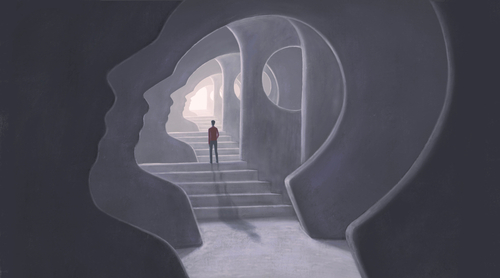California rolling out 'CARE Court' program that offers treatment to people with psychosis

Image from Shutterstock.
California is embarking on a new "CARE Court" program that will help people with psychotic disorders get comprehensive mental health treatment.
The Community Assistance, Recovery and Empowerment Act, or CARE Act, signed into law in September 2022, authorizes a range of people to file a petition in a new civil court system seeking to refer people into the program. Those who can petition the court include first responders, family members, social services providers and behavioral health providers, according to a fact sheet and a summary by the state.
The Washington Post, NPR and the Los Angeles Times have coverage.
Eight counties have to implement the program by October, part of an initial rollout that will eventually be implemented across the state, according to NPR and the Washington Post.
After a petition is filed, a judge will order an evaluation. If the person is eligible for the program, a treatment plan will be formulated. The treatment plan could include medication, a plan for housing and a connection to other social services.
Treatment lasts up to a year and can be extended for another year. After graduation from the program, participants remain eligible for ongoing treatment and support services.
Those who don’t complete the care plans could be hospitalized or referred for a conservatorship, according to the Washington Post. But a person couldn’t be forced into treatment or forcibly medicated unless authorized by a state law passed in 1967, according to the Los Angeles Times.
People found unfit to stand trial in criminal cases would also be eligible for the program. If they don’t accept care, they could risk prosecution.
California expects to spend up to $215 million per year for the program, according to the Washington Post. Initial estimates are that 12,000 people per year will eventually qualify for CARE Court, or Community Assistance, Recovery and Empowerment Court.
According to the Washington Post, the program “is cast as a middle road between jail and conservatorship, both of which require a mentally ill defendant to give up nearly all autonomy.”
Some impediments to the program include a shortage of health care workers and a lack of available housing.
Disability Rights California, a nonprofit group, had filed a petition seeking to block the program with the California Supreme Court, but the justices declined to hear the case.
Christian Abasto, legal director of Disability Rights California, told NPR that he worries that the CARE Court program could push people into involuntary treatment under a conservatorship.
The law “empowers parents, police, school persons to basically make an accusation and invoke the court system with potential confinement and potential infringement of the civil rights of people with mental health disabilities when they have done nothing wrong,” Abasto said.
See also:
ABAJournal.com: “California governor backs mental health courts that could compel people into care”
Write a letter to the editor, share a story tip or update, or report an error.



